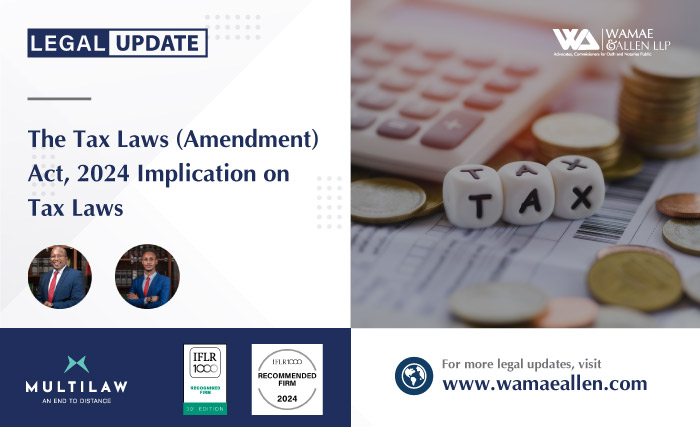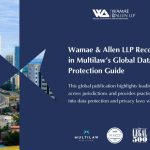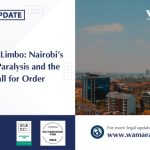There is now a new section (12E) to the Income Tax Act to regulate SEP Tax, targeting non-resident entities earning income from services provided over a digital marketplace.
Who is taxed? – Non-resident persons earning income from providing services over a digital marketplace where the user of the service is located in Kenya.
What qualifies as significant economic presence? – A non-resident person has significant economic presence if they are engaged with users in Kenya, even without physical presence.
The tax does not apply to:
- Non-resident persons providing services through a permanent establishment in Kenya (taxed differently);
- Income already chargeable under Section 9(2) (dealing with taxation of business income) or Section 10 (withholding tax on specific payments to non-residents);
- Digital services provided to airlines where the Kenyan government owns at least 45% shareholding;
- Non-resident persons with an annual turnover below KES 5 million.
Taxable profit is deemed to be 10% of the gross turnover from services provided. The non-resident person must file a return and pay the tax by the 20th day of the month following the month in which the service was offered.
SEP Tax replaces the Digital Service Tax.
MINIMUM TOP-UP TAX
The Amendment also introduced a new section (12G) to the Income Tax Act.
Who is taxed? – Covered persons, include residents or persons with permanent establishments in Kenya that are part of a multinational group with a consolidated annual turnover of 750 million euros or more in at least two of the preceding four years.
What triggers the tax? – If the combined effective tax rate (CETR) of the group in Kenya is less than 15%. The minimum top-up tax is the difference between 15% of net income or loss for the year; and the actual CETR, multiplied by the excess profit.
Excess profit is defined as the net income or loss for the year less specific deductions i.e 10% for employee costs & 8% for the net book value of tangible assets.
Entities that are exempt from the tax include;
- Public entities not engaged in business.
- Entities with tax-exempt income under Paragraph 10 of the First Schedule.
- Pension funds and their assets.
- Real estate investment vehicles that are ultimate parent entities.
- non-operating investment holding companies.
- Investment funds that are ultimate parent entities.
- Sovereign wealth funds.
- Intergovernmental or supranational organizations and their wholly owned agencies or organs.
This Tax is intended to align Kenya with the global Pillar Two framework, aimed at ensuring large MNEs pay a minimum level of tax on profits regardless of the jurisdiction they operate in.
This article is provided free of charge for information purposes only; it does not constitute legal advice and should be relied on as such. No responsibility for the accuracy and/or correctness of the information and commentary as set in the article should be held without seeking specific legal advice on the subject matter. If you have any query regarding the same, please do not hesitate to contact Banking & Finance, Commercial & Corporate Department at WACommercial@wamaeallen.com
 Loading...
Loading...
About the author
Charles is an experienced transactional advocate with over 17 years experience in the legal industry. He is the Managing Partner at Wamae and Allen, an Entrepreneur and a proponent of the Adaptability Quotient(AQ) theory.
-
https://wamaeallen.com/author/
-
https://wamaeallen.com/author/
-
https://wamaeallen.com/author/
-
https://wamaeallen.com/author/











